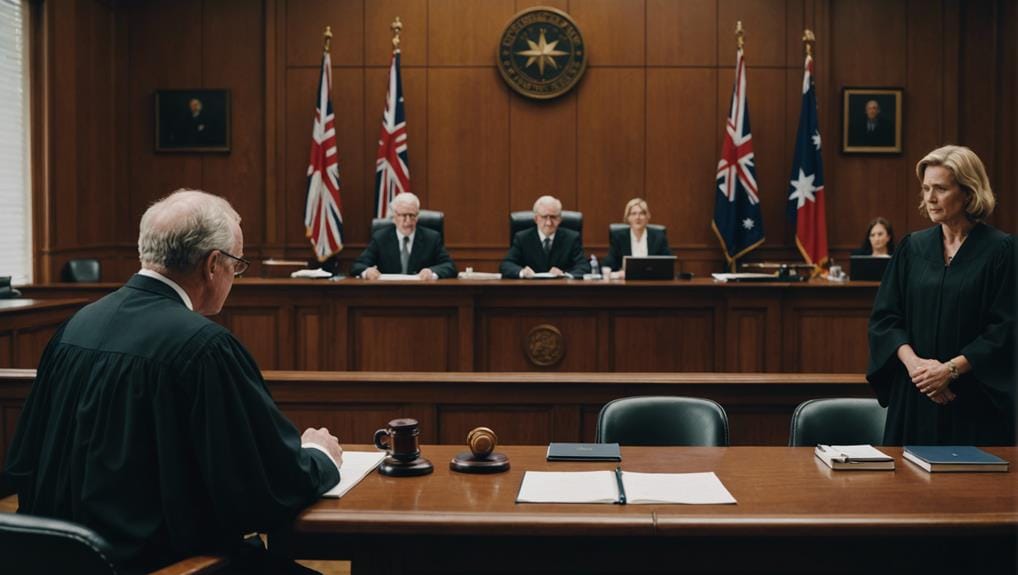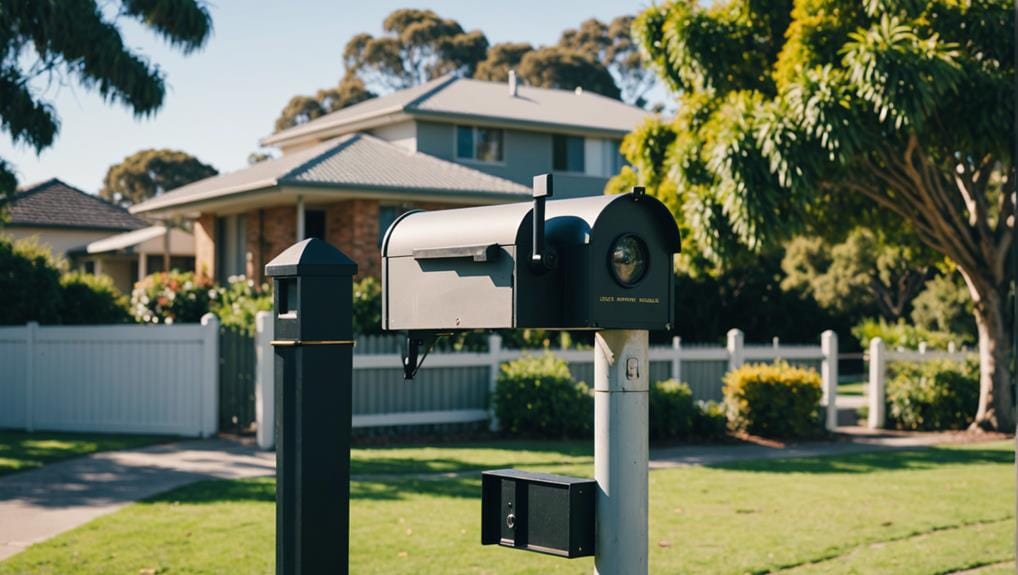Estate planning is about more than wills and inheritance. A binding financial agreement (BFA) can act as a planning [...]
When you’re preparing to separate in Australia, it’s important to understand family law. When you acknowledge the need to part ways, consult in a Discovery or Strategy Session with a family lawyer to understand your rights and obligations.
You’ll need to document your assets and liabilities, open a separate bank account, and update essential documents like your Will and Powers of Attorney.
Knowing the differences between divorce and property settlement, along with the specific time limits for filing claims, is key to protecting your interests. As you proceed, you’ll discover how property and financial management can pave the way for a smoother shift.
Preparing for Separation
When preparing for separation, you should then seek an initial legal consultation to understand your rights and obligations. Finally, creating a personalised separation plan will guide you through the logistical and emotional steps involved.
Recognising the Need for Separation
Recognising the need for separation often starts with deep emotional reflection and an honest assessment of your relationship’s viability.
Strategic planning is vital in this phase; documenting your assets and liabilities prepares you for the property settlement ahead. It’s wise to open a separate bank account to guarantee financial autonomy post-separation. Understanding the legal implications early on will help you navigate the family law processes effectively. Seek early legal advice to clarify your rights, entitlements, and any potential disputes. This preparation sets a solid foundation for the steps you’ll need to take next.

Initial Legal Consultation
Before separating, it’s wise and often essential you seek an initial legal consultation to understand your individual rights and obligations. This early legal advice can profoundly impact your decisions regarding property settlements, parenting arrangements, and financial matters. Family lawyers offer tailored legal guidance to fit your unique circumstances, ensuring you’re informed about the legal implications of your separation.
An expert family lawyer should offer you resources and support holistically about not only legal rights but also your financial and emotional future. An initial consultation clarifies your options, providing a roadmap of the necessary steps ahead.
By understanding these aspects with a family law firm that understands you, you’ll navigate the separation process with greater confidence and precision. This strategic approach minimises potential conflicts and facilitates a smoother progression, ultimately safeguarding your interests and those of your loved ones as you move forward.
Creating a Personalised Separation Plan
How can you guarantee that your separation process is as smooth and structured as possible? Start by crafting a personalised separation plan that meticulously documents all assets and liabilities. This step is critical for a fair property settlement.
Open a separate bank account to secure your financial independence moving forward. Don’t forget to update your Will and Powers of Attorney to reflect your new circumstances.
Additionally, change your passwords and safeguard your personal information to protect your privacy.
Most importantly, seek legal advice early. This will not only clarify your rights but also provide strategic guidance tailored to your unique situation, ensuring you navigate your separation with confidence and precision.
Understanding Legal Frameworks
As you navigate your separation, it’s important to understand the differences between divorce and property settlement.
You’ll need to be aware of specific time limits for filing claims, which can greatly impact your case. Familiarizing yourself with these legal frameworks ensures you’re well-prepared to protect your rights and interests.
Divorce vs. Property Settlement
Understanding the legal frameworks of divorce and property settlement is crucial as they serve distinct purposes in family law.
Divorce legally ends your marriage and requires you to meet specific legal criteria. On the other hand, property settlement deals with dividing assets and liabilities; it’s about ensuring a fair distribution post-separation.
While the family law courts can handle disputes regarding property settlements, divorce proceedings follow a more defined legal procedure. It’s essential you comprehend these differences to navigate the process effectively. Each framework has its own set of rules and implications, making it imperative to understand both thoroughly to protect your interests and achieve a fair outcome.

Importance of Knowing Time Limits
You need to be aware of the time limits in family law to avoid missing important deadlines. Understanding these periods is essential for guaranteeing your actions are legally valid and effective. Here’s what you should keep in mind:
- Property Settlement: Typically, you have 12 months from the date of your divorce becoming final to file for property settlement.
- Divorce Application: After a 12-month separation period, you can apply for a divorce.
- Responding to Notices: Always respond within the specified time frame on any legal notice you receive to avoid unnecessary legal complications.
Knowing these limits ensures you’re not left behind in your legal journey.
Updating Personal and Legal Documents
After separating, it’s important you review and update your will to reflect your new circumstances. You’ll also want to check your Will and Enduring Power of Attorney to make sure it aligns with your current wishes. Making these updates can safeguard your interests and ensure your intentions are clear moving forward.
Reviewing Your Will
Reviewing and updating your will post-separation guarantees your assets are distributed according to your current preferences. Here are three critical steps to contemplate:
- Identify Changes in Beneficiaries: Evaluate who you currently wish to benefit from your estate. This may differ notably from decisions made during your marriage.
- Select a Suitable Executor: Choose someone you trust to handle your estate efficiently and in line with your updated wishes.
- Consult with a Legal Professional: Make sure your will is legally binding and reflects all recent changes accurately. A lawyer specializing in family law can provide invaluable guidance.

Updating Enduring Power of Attorney
Just as updating your Will is important, it’s also essential to revise your Enduring Power of Attorney to make sure it reflects your current situation. After a separation, it’s crucial to verify that the person designated to make decisions on your behalf aligns with your present circumstances and preferences. By updating this document, you’re not only safeguarding your interests but also guaranteeing that your legal and financial affairs are managed according to your wishes. This proactive step is indispensable in maintaining control over important decisions during such challenging times. Don’t overlook the significance of this update; it’s integral to ensuring your peace of mind and the proper management of your affairs.
Property and Financial Management
When handling property and financial management during a separation, it’s important to address the separation of joint tenancies first. You’ll need to secure your financial independence by reassessing and possibly restructuring joint accounts and credit lines. Taking these steps helps safeguard your financial future and minimises complications in your separation process.
Separating Joint Tenancies
Understanding the separation of joint tenancies requires a clear grasp of both your rights and shared financial responsibilities. When you’re moving through this process, it’s crucial to handle each step with precision to guarantee a fair and effective resolution.

Here are three critical actions to ponder:
- Seek Legal Advice: Obtain guidance from a family law expert to comprehend the legal nuances of your joint tenancy and how to approach separation.
- Document Everything: Maintain accurate records of all communications and decisions related to property division to support your case.
- Negotiate Fairly: Engage in transparent negotiations with your former partner, aiming for a settlement that respects both parties’ contributions and rights.
Securing Financial Independence
When you’re maneuvering through separation, securing your financial independence becomes essential. Opening new bank accounts in your name is a first step to establish control over your finances. It’s also important to thoroughly review your financial assets and liabilities to understand your economic standing and plan accordingly.
Opening New Bank Accounts
Opening a new bank account after separation is essential to guarantee your financial independence and manage your personal finances without interference. Here’s what you should do:
- Select a Bank: Choose one that offers the best benefits for your individual needs.
- Gather Necessary Documents: Typically, you’ll need identification and proof of address.
- Set up Online Access: Make sure you can manage your account anytime, anywhere.
Reviewing Financial Assets and Liabilities
After setting up a new bank account, you’ll need to thoroughly review your financial assets and liabilities. Scrutinise each asset and liability to guarantee accurate division and maintenance of financial stability. Update pertinent documents like insurance and superannuation. Managing joint accounts meticulously is vital for achieving financial independence. This strategic approach minimises disputes and fosters a clearer path through the separation process.
Securing Personal and Digital Information
As you navigate through your separation, it’s important to secure your personal and digital information. Start by changing your passwords and access codes to make sure your accounts remain private. You should also set up independent digital accounts to maintain your online security and privacy.
Changing Passwords and Access Codes
Securing your personal and digital information is crucial, so start by changing your passwords and access codes. This step not only protects your sensitive data but also guarantees your privacy remains intact during the separation process. Here’s how you can enhance your digital security:
- Update Regularly: Change your passwords and PINs every few months to minimize the risk of unauthorized access.
- Use Strong Combinations: Create complex passwords that combine letters, numbers, and symbols to fortify your accounts against potential breaches.
- Stay Vigilant: Monitor your account activities for any unusual actions that might indicate security threats or breaches.

Establishing Independent Digital Accounts
To safeguard your privacy during a separation, it’s important to establish independent digital accounts. You’ll need to create new email addresses and passwords that only you know. This step is vital not just for email, but also for your social media and online banking. Make sure that you update your security questions and recovery options to prevent any unauthorized access. It’s wise to enable two-factor authentication on these accounts for an added layer of security. Additionally, consider using a password manager to handle your new credentials securely and efficiently. This tool aids in managing multiple accounts without the risk of forgetting complex passwords or storing them insecurely.
Professional Consultation and Advice
As you navigate your separation, it’s important to seek professional consultation. Legal advice will clarify your rights and options, ensuring you’re well-prepared for any legal proceedings. Additionally, consulting with a financial planner can safeguard your economic future during and after the divorce. Seek an Family Lawyer that offers you a holistic solution which may include financial and emotional support professional recommended partners.

Legal Advice
Seeking early legal advice is essential to fully understand your rights and options during a separation in Australia. Here are three key reasons why you should consult a family lawyer early:
- Tailored Legal Strategies: Every separation is unique. A family lawyer can develop personalised legal strategies that cater to your specific circumstances, ensuring your rights are protected throughout the process.
- Clarity on Legal Processes: Professional legal assistance provides clear understanding of what’s required for enforceable orders and the overall legal implications of your separation.
- Effective Dispute Management: Lawyers are pivotal in managing disputes amicably, especially concerning parenting arrangements and child support, which helps in achieving a smoother progression for all involved.
Financial Planning
Consult a financial advisor, many expert lawyers partner with financial planners who are expert in Family Law cases, to strategically manage your assets and plan for your economic future following separation. Engaging with a professional guarantees you craft a budget reflecting your changed income and expenses. This expert guidance is essential in maneuvering through the complexities of asset management, liabilities, and investment adjustments during this transformative period. Your advisor will also help you grasp the tax implications and financial consequences associated with property division, optimizing your financial outcomes. This step is critical for laying a foundation toward financial independence. Don’t underestimate the importance of tailored advice; it’s necessary for maintaining stability and securing your economic well-being as you adjust to your new life circumstances.
Emotional and Social Support
During your separation, it’s important to seek emotional support to help you manage the stress and emotional upheaval. Working with life coaches can provide you with strategies to rebuild your personal confidence and navigate your new life path. Don’t underestimate the power of a strong support network in maintaining your mental well-being.
Seeking Emotional Support
Exploring the emotional terrain of separation, it’s vital to lean on family, friends, or professionals for support. Making your way through this tough period, it’s important to maintain your emotional well-being. Here are three practical ways to seek the support you need:

- Maintain Social Connections: Regular interaction with close ones can provide comfort and prevent feelings of isolation.
- Join Support Groups: Engage with others facing similar challenges. These groups offer not only camaraderie but also valuable insights and coping strategies.
- Talk to Professionals: If the emotional toll feels overwhelming, consider consulting a therapist who can offer expert guidance and support tailored to your specific needs.
Working with Life Coaches
While maintaining social connections and seeking professional advice can bolster your emotional resilience, working with life coaches offers another layer of personalized support during separation. Life coaches provide tailored strategies to manage your emotions, enhance communication, and refine your decision-making skills. They focus on empowering you to build resilience, set clear boundaries, and prioritize self-care. By working with a life coach, you’ll establish healthy coping mechanisms and increase self-awareness, leading to positive changes in your life. This partnership can boost your self-confidence, improve your relationships, and facilitate a smoother progression through the separation process. Embrace this resource to navigate your journey with more clarity and confidence.
Enhancing Personal Security and Privacy
As you navigate through your separation, it’s important to prioritise your personal security and privacy. Updating your home security measures and implementing digital privacy strategies are key steps to safeguard your safety and confidentiality. These adjustments will help protect your personal information from being compromised during this vulnerable time.
Home Security Updates
You should consider enhancing your home security by updating locks and alarm codes to boost personal safety and privacy. As you navigate through your separation, it’s important to fortify your residence against unauthorized access. Here’s how you can enhance your home security effectively:
- Replace Old Locks: Install high-quality, tamper-resistant locks on all exterior doors.
- Update Alarm Systems: Change the codes on your alarm system and consider integration with a monitored security service.
- Install Surveillance: Add security cameras at key points around your home for real-time monitoring and recorded evidence in case of any breaches.
Taking these steps will not only secure your physical space but also give you peace of mind during this significant period.

Digital Privacy Measures
To enhance your digital privacy during a separation, start by changing your passwords and updating your security settings. Implement two-factor authentication on all critical accounts to add an extra layer of protection. Regularly review and adjust the privacy settings on your social media and other online platforms to minimize unwanted information exposure. It’s essential to adopt strong password practices, using unique and complex passwords for each account, and consider using a reputable password manager. Additionally, utilize secure communication methods and encryption when sharing sensitive information online. This proactive approach not only secures your digital presence against unauthorized access but also safeguards your personal data during this vulnerable time.
Self-Care During Separation
During your separation, it’s important to maintain both your physical and mental health. Engaging in regular exercise and eating a balanced diet can help you manage stress and keep your body strong. Additionally, consider speaking with a therapist or counselor to support your emotional well-being through this tough period.
Physical Health
Maintaining your physical health is essential for resilience and overall well-being throughout the separation process. Here’s how you can stay physically healthy:
- Engage in Regular Exercise: Incorporate at least 30 minutes of moderate exercise into your daily routine. Activities like walking, cycling, or yoga not only help reduce stress but also boost your mood.
- Prioritise Sleep and Nutrition: Aim for 7-9 hours of quality sleep each night and nourish your body with balanced meals. Proper sleep and nutrition are fundamental in maintaining your emotional stability and coping capacity.
- Practice Mindfulness and Relaxation: Set aside time for mindfulness practices such as meditation or deep-breathing exercises to manage anxiety and maintain mental clarity, keeping your physical responses to stress in check.

Mental Health
Amid the challenges of separation, prioritising your mental health is important for getting through this emotional period effectively. You should maintain a healthy lifestyle to manage stress and enhance your emotional well-being. It’s essential to seek professional life coaching and support services, which can provide you with the necessary tools to cope with the emotional upheavals. Additionally, building a strong support network with family, friends, colleagues, or support groups can greatly bolster your mental health. Engaging in support sessions will also help you deal with negative thoughts and behaviors that often accompany separation.
Conclusion
As you reach the end of this guide, it’s important to recap the key steps you’ve learned that will aid in your separation process. Stay positive and remember that with the right information and support, you can navigate this challenging time more smoothly. Looking ahead, think about how each decision will shape your future and continue seeking guidance to protect your rights and well-being.
Summary of Key Steps
To effectively manage your separation in Australia, start by setting a clear separation date, as this is essential for legal proceedings and future divorce eligibility. Here are three critical steps you need to take:
- Update Essential Documents: Immediately revise your utility accounts, lease agreements, beneficiaries, and automatic payments to reflect your new status.
- Document Contributions: Keep detailed records of your contributions to the relationship, both financial and non-financial, which are important for property settlements and potential spousal maintenance claims.
- Establish Financial Independence: Create a new budget that accounts for your changed income and expenses, ensuring you can maintain financial stability moving forward.
Encouragement and Future Outlook
Having outlined the practical steps for managing your separation, let’s now focus on rebuilding and moving forward with hope and confidence. It’s essential to embrace the future with optimism and focus on personal growth. Seek professional guidance to expertly navigate the challenges ahead and strategically plan for a brighter future. Believe in your resilience and your ability to overcome difficulties. This period post-separation is ripe with new opportunities and possibilities for a fulfilling life. Stay hopeful and motivated to create a positive and empowering future for yourself and your loved ones. Remember, this is not just an end but a fresh beginning towards a more rewarding chapter in your life.
Frequently Asked Questions
| Preparing for Separation | Understanding Legal Frameworks |
|---|---|
|
Acknowledge the decision to separate and its implications.
Schedule an initial consultation with a family law attorney.
Develop a personal separation plan outlining intended steps and goals.
|
Educate yourself on the difference between divorce and property settlement.
Learn about the legal time limits for filing divorce and settlement claims.
|
| Updating Personal and Legal Documents | Property and Financial Management |
|
Review and update your Will to reflect current circumstances.
Update your Enduring Power of Attorney to ensure appropriate representation.
|
Convert joint tenancies into tenancies in common if necessary.
Open a new bank account in your own name to establish financial independence.
Assess all financial assets and liabilities including mortgages, loans, and credit cards.
|
| Securing Personal and Digital Information | Professional Consultation and Advice |
|
Change passwords and access codes for all personal and shared accounts.
Set up new, independent digital accounts for email and social media.
|
Obtain legal advice to understand your rights and options.
Consult with a financial planner to evaluate the impact of separation on your finances.
|
| Emotional and Social Support | Enhancing Personal Security and Privacy |
|
Identify friends, family members, or professionals who can offer emotional support.
Consider engaging a life coach to help manage life changes and set new goals.
|
Update or install new locks and security systems at home.
Review and enhance digital privacy settings across all platforms.
|
| Self-Care During Separation | Concluding the Separation Process |
|
Maintain a routine that supports physical health, including diet and exercise.
Engage in activities that promote mental health, such as meditation, reading, or hobbies.
|
Review the steps taken and adjust any ongoing strategies as necessary.
Remind yourself of the progress made and set plans for moving forward post-separation.
|

























